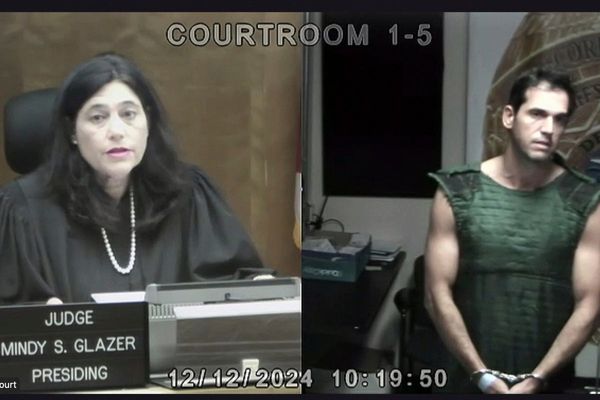
Chanel Contos, a sexual consent education advocate, says teenagers may be getting so desensitised to porn that it’s affecting their reaction to sexual harassment, with research suggesting male students become less likely to intervene when a female classmate is targeted as they reach Year 9.
The study of Victorian school students by Australia’s National Research Organisation for Women’s Safety (Anrows), released on Wednesday, found that 20.2% of Year 7 boys intended to intervene when sexual harassment was taking place. However, just 12.8% of those in Year 9 shared that attitude.
Overall, boys were also less likely than girls and gender diverse students to say they intended to intervene if a male student sexually harassed a girl.
Contos said as boys progressed through high school they would probably consume more explicit pornography, which “desensitises them to sexual harassment and assault”.
“At this age, they’re also finding their feet socially, and there’s still a stigma amongst groups of young boys – that intervening [in] rape jokes or sexual harassment is not ‘cool’ or ‘masculine’ – which I hope healthy masculinity education will challenge,” she said.
“Rape culture relies on the normalisation of violence and a building block of that [is] sexual jokes that girls are the brunt of. The work I do everyday tells me that culture that normalises and encourages these acts is pervasive.”
The report was based on a program involving nearly 400 students from six secondary schools in Victoria and examined the gendered attitudes. It found implementing the “Resilience Rights and Respectful Relationships” (RRRR) program in secondary schools led to a decrease in students who said they sexually bullied other students, from 8.7% to 5.9%, and those who said they bullied others from 11.8% to 10.3%.
Almost a third of year 9 boys and more than a fifth of year 7 boys said it would not bother them if a boy in their class told a sexual joke about a girl in their class.
Prof Helen Cahill, who led the research, called for a nationally consistent approach to respectful relationships programs in schools.
“Students are saying it’s really needed and really useful in their lives,” she said.
Cahill said the RRRR program was unique because it was holistic by combining social and emotional skills with a focus on respectful relationships, including consent.
“The broader research shows if we do the social and emotional learning, we actually improve academic attainment because we improve the peer relationships at school,” she said.
“It responds to the mental health needs and gender relationship needs of our times.”

Contos, who founded the Teach us Consent campaign which led to mandated consent education in Australian schools, backed Cahill’s call for federal standards for respectful relationship programs.
“Everyone deserves a right to the most holistic and comprehensive sexuality and respectful relationships education available,” she said.
Jacqueline Hendriks, a researcher at Curtin university who specialises in young people, relationships and sexuality education, said it was difficult to determine the cause of reduced intention to intervene in sexual harassment.
“Attitudes are formed by lots of things. It’s not just the lessons they learn in school but the messages they hear at hone, from their peers, information they get online and in the media,” she said.
“That can be problematic as they age. They can be exposed to interesting viewpoints which unfortunately one school program can’t combat all of those things.”
Hendricks said the RRRR program should be rolled out nationally.
The study found early and consistent intervention in education settings is a crucial step to help end the cycle of gender-based violence.
One Year 7 male student who participated in the RRRR program said it would help because “I’m someone who’s peer pressured a lot.”
“It helps me stand up for myself and not let people tell me what to do,” he said.
“In real life it’s very hard to be a male and ask for help, because there’s a lot of stereotypes behind being tough,” a Year 9 male student said.







